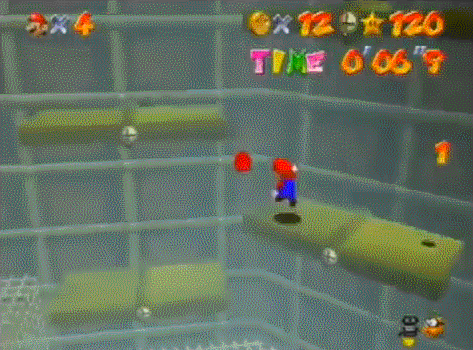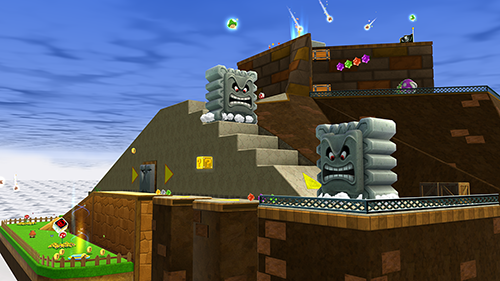Let's wait until Odyssey actually comes out before we make assumptions. But I still feel like people will always be more biased towards Nintendo no matter what. Even if Odyssey were to turn out to be as "disappointing" as Yooka Laylee, I'm sure it'd still get a free pass just because it's Nintendo. Playtonic would never get that kind of leeway, and it's actually kind of not fair when you think about it. It was the same exact situation when Rare and Nintendo were releasing games on the N64 back in the day.
And frankly, I kind of don't understand the criticism Banjo Kazooie was getting in this thread these last two pages. Banjo is a COMPLETELY different type of platformer/adventure game. In fact, it isn't even much of a platformer, but that's because it's not meant to be. Rare's N64 platformers focused more on the adventure and exploration aspect rather than the platforming. There's no sense in criticizing those games and comparing them to Mario 64 because they were never meant to be like Mario 64. As a game itself and as an exploration/adventure game, Banjo Kazooie was awesome.
You're right. Super Mario 64 is a platforming game with adventure game elements and Banjo-Kazooie is an adventure game with platforming elements - they're very similar to one another, but both have different intentions to their design.
But at the core of their design, large hub worlds with multiple objectives is still at the basis of their experience - you go into a large open level, you complete a task to get a token, there's usually more than one task to complete.
The inbetween is where the difference is - Super Mario 64 asks you to use your core set of abilities to solve challenges the majority of the time, which is where people are celebrating it's allowance for experimentation and high level play. Banjo-Kazooie on the other hand usually has objectives tied either to using special abilities or just for paying attention to the environment.
Best example are their final levels - Click Clock Woods and Tick Tock Clock. Both have a similar vertical design, and both have a central gimmick that relates to time - in Mario, it's having obstacles speed up or slow down depending how you enter the level, while in Banjo it's a level that shifts through different seasons, with objectives and obstacles rearranged depending.
Where as climbing up Tick Tock Clock is part of the fun of that game, Click Clock Woods is more in the vain of an adventure game where you go between different seasons to effect one another.
The reason I mention this is that - having replayed both these games recently - returning to Banjo-Kazooie was nowhere near as satisfying as I had already completed these objectives before, whereas with Super Mario 64 there was ground to improve and be more risky which was way more enjoyable.
Different strokes for different folks I guess




